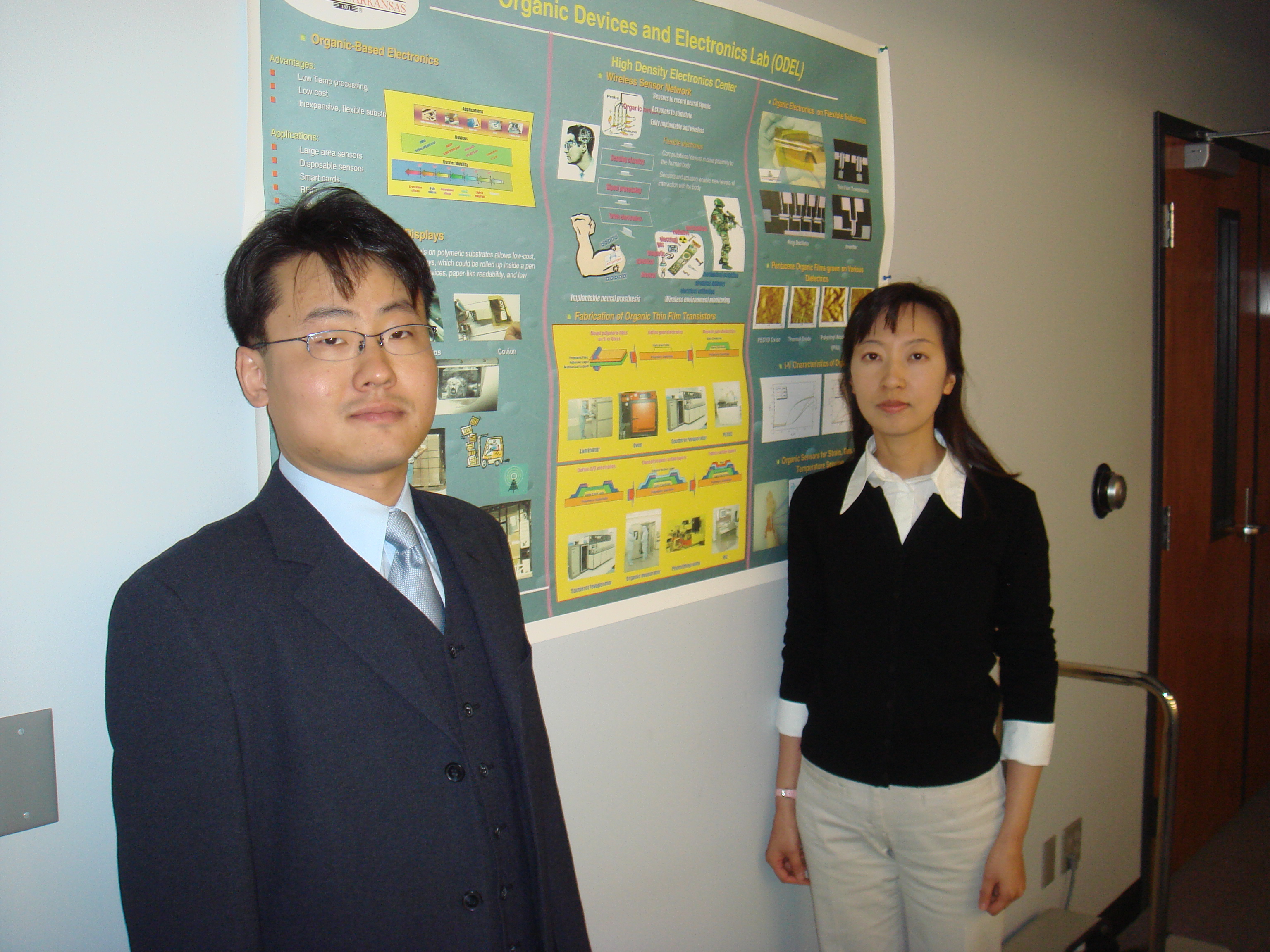FAYETTEVILLE, Ark. — Working with an organic semiconductor, electrical-engineering researchers at the University of Arkansas have fabricated and tested two similar but slightly different biosensors that can measure important physiological signs. Integrated into “smart” fabrics — garments with wireless technology — the sensors will be able to monitor a patient’s respiration rate and body temperature in real time and thus provide point-of-care diagnostics to health-care professionals and greater freedom for patients.
“We’re trying to move diagnostic testing out of the laboratory and directly to the patient,” said Taeksoo Ji, assistant professor of electrical engineering. “Although there has been some success at this effort over the past decade, traditional materials are not suitable for manufacturing low-cost, large-area sensor devices. The advantages of organic semiconductors will allow manufacturers to produce devices that are light, flexible and easily integrated into biomedical applications such as smart vests and fabrics.”
The researchers — Ji and Soyoun Jung, a graduate student in electrical engineering, under the direction of Vijay Varadan, Distinguished Professor of electrical engineering — worked with pentacene, a hydrocarbon molecule, and carbon nanotubes to develop the two types of sensors — a temperature sensor and a strain sensor. The addition of carbon nanotubes with pentacene increases sensor sensitivity. As an organic semiconductor, pentacene is efficient and easy to control. Both sensors were fabricated directly on flexible polymeric substrates.
The strain sensor, which would monitor respiration rate, consisted of a Wheatstone bridge, an instrument that measures unknown electrical resistance, and a thin pentacene film that acted as a sensing layer. The system would work when a physiological strain, such as breathing, creates a mechanical deformation of the sensor, which then affects the electrical current’s resistance. The researchers found that the smaller the sensor, the more sensitive it was to current variations.
For the temperature sensor, the researchers used what is known as a thin-film transistor, which is a special kind of transistor that deposits thin film semiconductors on substrates. The thin-film transistor helped the researchers observe electrical current in linear response to temperature change. Most importantly, in low voltage areas, the current displayed the highest sensitivity to temperature changes.
The success of the research is promising for patients whose vital signs must be continuously monitored. Varadan said the sensors and wireless networks can fit on garments such as undershirts. With this technology, the smart fabric can monitor vital signs and collect and send data to an information hub in real time. The information can provide immediate detection of physiological abnormalities, which will allow physicians to begin treatment or prevent illness before problems reach an acute stage.
The research was done in the Organic Electronics and Devices Laboratory, which is part of the College of Engineering’s Center for Nano-, Bio-, and Info-Technology Sensors and Systems. Varadan is director of the center.
Varadan holds the College of Engineering’s Twenty-First Century Endowed Chair in Nano- and Bio-Technologies and Medicine and the college’s Chair in Microelectronics and High Density Electronics. In addition to his position director of the above center, he directs the university’s High Density Electronics Center. Varadan is also a professor of neurosurgery in the College of Medicine at the University of Arkansas for Medical Sciences.
Contacts
,
